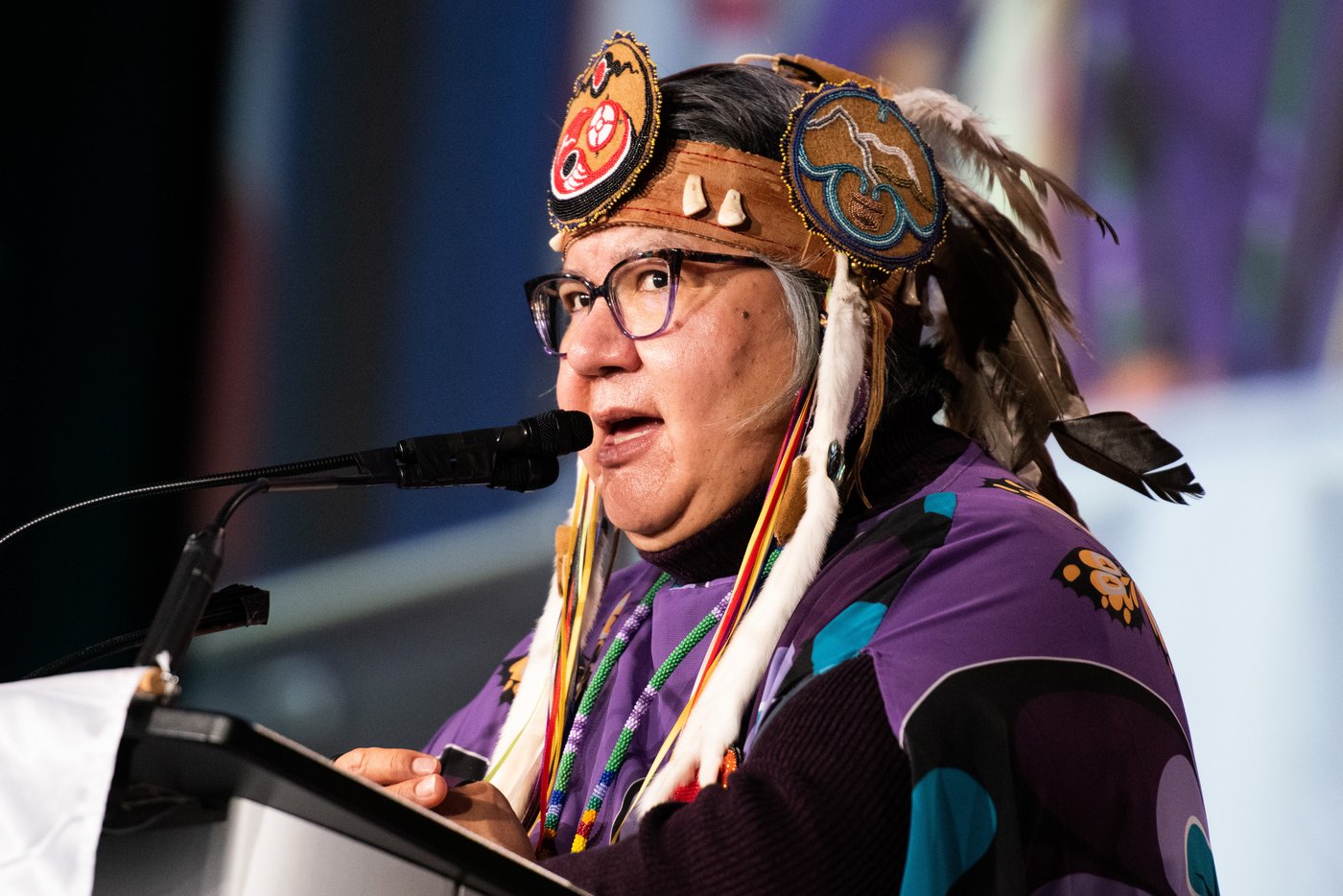The federal government does not have a willing partner to find a way to introduce fire codes on First Nation reserves, a newly released document shows.
The senior director for the Indigenous Fire Marshal Service, however, says there are steps Ottawa can take now to better protect communities.
“Doing nothing is not an option,” said Blaine Wiggins. “Analyzing the problem that they already know is not an option.”
A meeting scenario note for Indigenous Services Minister Patty Hajdu, obtained by The Canadian Press through access-to-information legislation, details some of the sticking points the department says it has run into when it comes to improving fire prevention.
The note was prepared ahead of an anticipated meeting with Assembly of First Nations National Chief RoseAnne Archibald last October.
For decades, house fires on First Nations have caused deaths and injuries at a much higher rate than off-reserve. Experts say that’s due to of a range of factors, from insufficient housing and overcrowding to improper education and funding for fire prevention and suppression services.
Another major gap is that national and provincial building and fire codes do not apply to structures on First Nations. That means it is up to communities to pass their own bylaws.
Ontario Regional Chief Glen Hare believes that ought to change.
“It’s a no-brainier,” he said in an interview Friday. “(You’ve) got to have fire protection in your home.”
Andrew MacKendrick, Hajdu’s director of communications, confirmed the minister met with the National Indigenous Fire Safety Council and then later spoke with Assembly of First Nations Regional Chief Cindy Woodhouse on the matter, as per directions from Archibald’s office.
Woodhouse heads the fire safety file for the AFN, which is the advocate voice for more than 600 First Nations across the country. She did not respond to a request for comment and the assembly did not provide a comment on its position by deadline.
According to the document, the agenda for Hajdu’s meeting included the possible development of legal and regulatory fire protection on-reserve.
It also detailed the AFN’s own history with the issue.
It noted that chiefs passed a resolution at a 2017 gathering recognizing the lack of national fire standards on-reserve and endorsing the creation of an office that eventually became the Indigenous Fire Marshal Service, which is part of the Indigenous safety council.
But Indigenous Services officials noted that the idea of bringing in regulations or legislation was then abandoned, “due to a lack of First Nations leadership support.”
“(The) Assembly of First Nations has previously not been supportive of legal or regulatory approaches to fire protection. To my knowledge, there are currently no partners willing to support co-developed approaches to fire enforcement,” reads a set of prepared opening remarks for Hajdu.
Hare, who is a member of the AFN’s executive, said he plans to raise the issue when they next meet.
“I’ll just put the question out there: Do we support it or not?”
He said while First Nations do not accept many of the “codes” that have been imposed upon them by the federal government, he finds it difficult to imagine a chief saying, ‘Well, we can’t do this.'”
Wiggins said his office of eight is working to get buy-in from communities and build capacity for them to institute their own standards.
“Instead of one legislation for 630 communities, 630 pieces of bylaw for 630 communities.”
He said one step Ottawa could take is working with organizations like his to make better funding decisions when it comes to equipment.
“I can go to a dozen First Nations communities where there are fire trucks, you know, really good fire trucks that are sitting in buildings not being utilized,” he said.
“Nobody knows how to use it.”
MacKendrick said Hajdu is open to all options, and is looking to hold a gathering to discuss fire safety in the coming weeks.
Federal officials have previously noted that legislating fire and building codes on First Nations raises complicated questions, given that much of the housing stock is in poor condition.
For example — is there a risk that homes that are not up to code are at risk of becoming condemned?
For Terrance Meekis, who assists with fire prevention on Sandy Lake First Nation, the idea of Ottawa bringing fire codes into communities like his raises questions of capacity.
Meekis said there are 10 firefighters in the northern Ontario community, which is better than others in the region.
He said Sandy Lake does not have fire codes, but is inspecting homes and dealing with ones that only have one door, or a blocked entryway. They also lack basic equipment like smoke and carbon monoxide detectors.
Three children died in a house fire last year, but Meekis said the community has seen fewer deadly blazes than in years past.
In fact, one of the first fires he witnessed took the lives of his great-aunt and cousin.
“I’ve really been fighting for fire safety for the past 20 years.”
This report by The Canadian Press was first published Jan. 23, 2023.
A previous version of this story incorrectly spelled Indigenous Services Minister Patty Hajdu’s name in several references. It has since been corrected.
Related


































